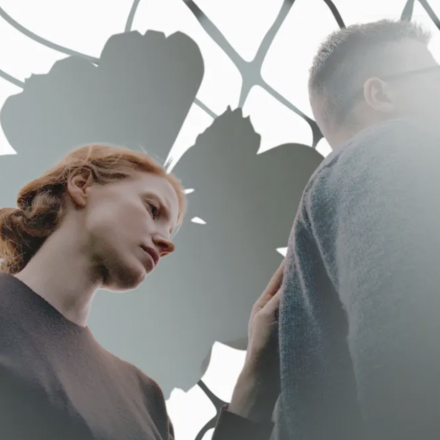"Looking for a Financier, Rich, Tall, with Blue Eyes": Why Choosing a Partner Based on Specific Criteria is Completely Normal
Recently, the internet was abuzz with a short yet striking video from TikTok blogger Megan Boney.
Recently, the internet was abuzz with a short yet striking video from TikTok blogger Megan Boney. She uttered the now-viral phrase: “I’m looking for a man in finance, trust fund, 6’5”, blue eyes.” Just a few seconds of video, and the audience was hooked—some took it seriously, while others saw the humor. Musicians even turned this statement into a track, and users began to mimic the audio, listing their own “ideal” partner attributes.
Interestingly, Megan herself admitted that her video was a satire on the high expectations of modern dating. Nonetheless, the joke quickly evolved into something bigger, sparking heated discussions on what is acceptable to expect from a potential partner.
But let's dive deeper: is it really so bad to have a list of desired qualities? After all, behind every “I want someone rich, handsome, and tall” lies more than just a whim—there are real needs.
Why It's Important to Know What You Want
When someone says they're looking for a specific type of partner, it often draws criticism. "How can you be so picky?" people say. But the truth is, we all already have our preferences. Some may choose based on looks, others on intellect, or maybe humor. And that's completely normal.
It's crucial to understand that your list of requirements isn't a judgment on others; it's a reflection of your own desires and needs. It helps you figure out what will truly make you happy. The key here is to be honest with yourself. If you need a partner who will share your sense of humor, support your hobbies, or won't be embarrassed by your “cringy” jokes, why not include that in your list?
What's Behind the “Ideal” Requirements?
Let's be honest: deep down, everyone has a list of preferences, even if it's unspoken. And it's not always about looks. Some might choose based on professional qualities (“I need someone smart and ambitious”), others based on how someone treats them (“I want someone caring and understanding”).
Your criteria are tools that help you filter out unsuitable options and quickly find people with whom you'll have a higher chance of a harmonious relationship. It's a time-saver, especially if you've outgrown the student phase of “trial and error.”
Why It's Okay to Have Preferences
Self-awareness is the key to healthy relationships. Before finding someone to spend your life with, you need to understand yourself. And your list of criteria can be very helpful here: it helps outline the boundaries within which you feel comfortable.
- Efficient Search. If you know you definitely need a partner who won't cringe at your jokes, why waste time on those who clearly don't share your sense of humor?
- No Compromises on Important Issues. For example, if it's crucial for you that your partner is confident and able to make decisions, it's better to voice that from the start rather than be disappointed later.
Why Looks Also Matter
Many say looks aren't important. But in reality, they do play a role because physical attraction is part of any romantic connection. And it's not about everyone looking for a “model” partner. It's more about the type that personally appeals to you. Maybe you’re drawn to sporty types, or perhaps you like people with unique appearances.
We can't pretend that visual preferences don't matter. We all notice someone in a crowd or like certain photos on social media, and that's part of our natural selection process. So, stop feeling guilty if you prefer blondes or brunettes, tall people, or those with striking eyes.
How to Create a “Checklist” for Your Ideal Partner
If you want to create your own set of criteria for choosing a partner, do it thoughtfully and seriously:
- Realism. If you're dreaming of a millionaire with perfect looks, think about how realistic that is for your life. Maybe it's worth focusing more on inner qualities rather than status or appearance.
- Flexibility. Yes, having a list is important, but don’t turn it into rigid boundaries. If someone almost fits your desires but falls short in a few areas, is it really worth missing out on a chance for happiness?
- Strategic Approach. Think long-term. It’s important that your partner isn’t just “good now” but also suits you in the long run. People change, and it's essential to understand which traits might evolve over the years.
So, if you have your own preferences and desires, speak up and don't be afraid of criticism. Choose someone who fits you, not someone society deems ideal. Remember, relationships aren't about pleasing others—they're about finding someone with whom you feel comfortable and happy.



















